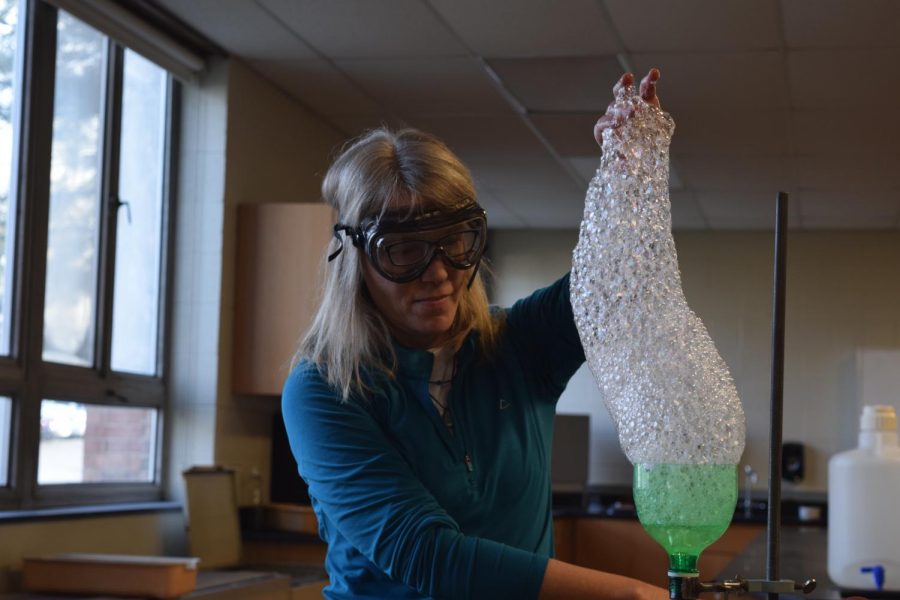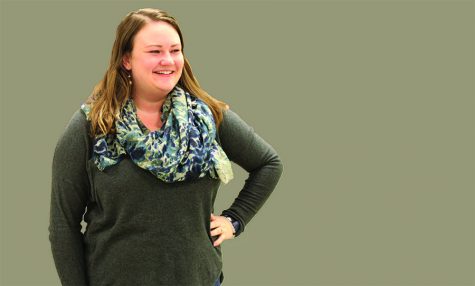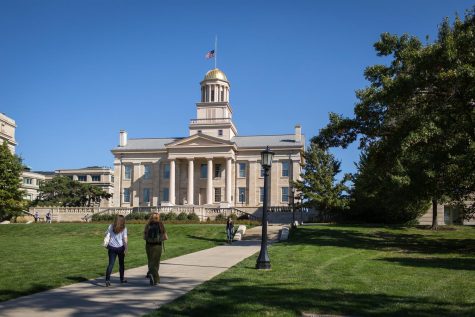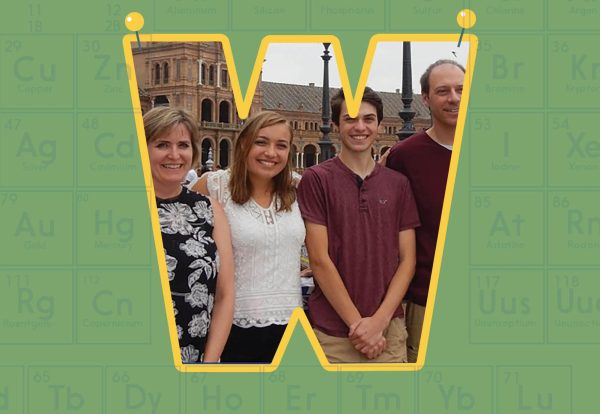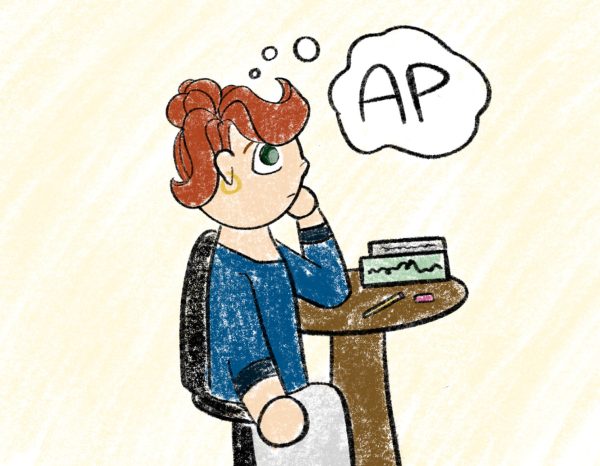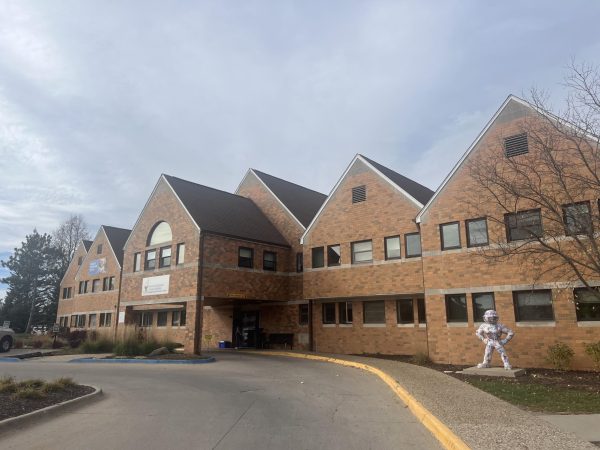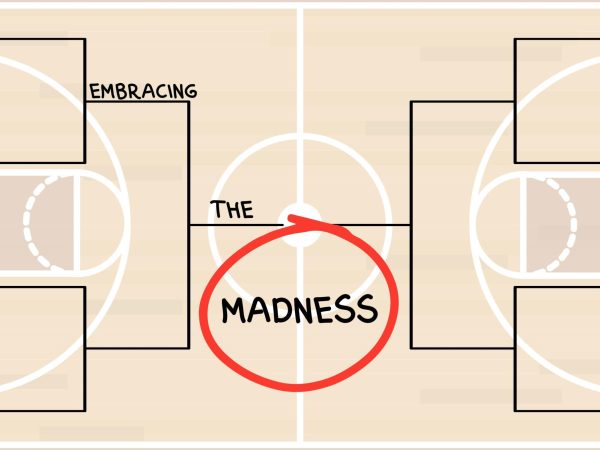Finding the right bond
Michelle Wikner shares how Captain Bob and a trip to Tanzania inspired her to teach chemistry.
Wikner pulls bubbles during one of her many lab demos for students.
On any given school day, Michelle Wikner can be found conducting chemistry experiments and teaching lessons. Known for her fascination and dedication to the chemistry program at West High, it might surprise students that Wikner has not always been so involved in chemistry. Although Wikner does have a long history with chemistry, her path to being an educator does not reflect her dedication to the topic.
Wikner was first introduced to chemistry by her high school science teacher, who students affectionately referred to as Captain Bob.
“He was very entertaining, he loved to do demonstrations, he was very passionate about what he did so it was easy to like chemistry and get into [it],” Wikner said.
While Wikner enjoyed the chemistry courses at her high school, she did not pursue a degree in chemistry in college.
“When I went to college, my long term goal was to go to medical school, and I thought biology was probably a little more applicable to that,” Wikner said.
I thought I was going to be helping out with some of the stuff, and pretty soon I was teaching a biology class in a Tanzanian school.
— Michelle Wikner
Wikner also attributes her choice of degrees the level of energy it takes to get a biology degree.
“[The Biology program] was also probably easier. I hate to say I was looking for the easy way out, but that was part of my thought process at the time,” Wikner said.
However, things did not turn out the way Wikner thought they would. During her senior year of college, Wikner studied abroad in Tanzania, which inspired her to teach.
“Part of my time there, I was working in a school and they were so understaffed they basically let me take over some of the stuff,” Wikner said. “I thought I was going to be helping out with some of the stuff, and pretty soon I was teaching a biology class in a Tanzanian school.”
After returning from her mission trip, Wikner began having doubts about going to medical school.
“At that point, it was my senior year and I had already been accepted into medical school. But then I had this really fun teaching experience and I knew that I had always liked working with young people,” Wikner said.
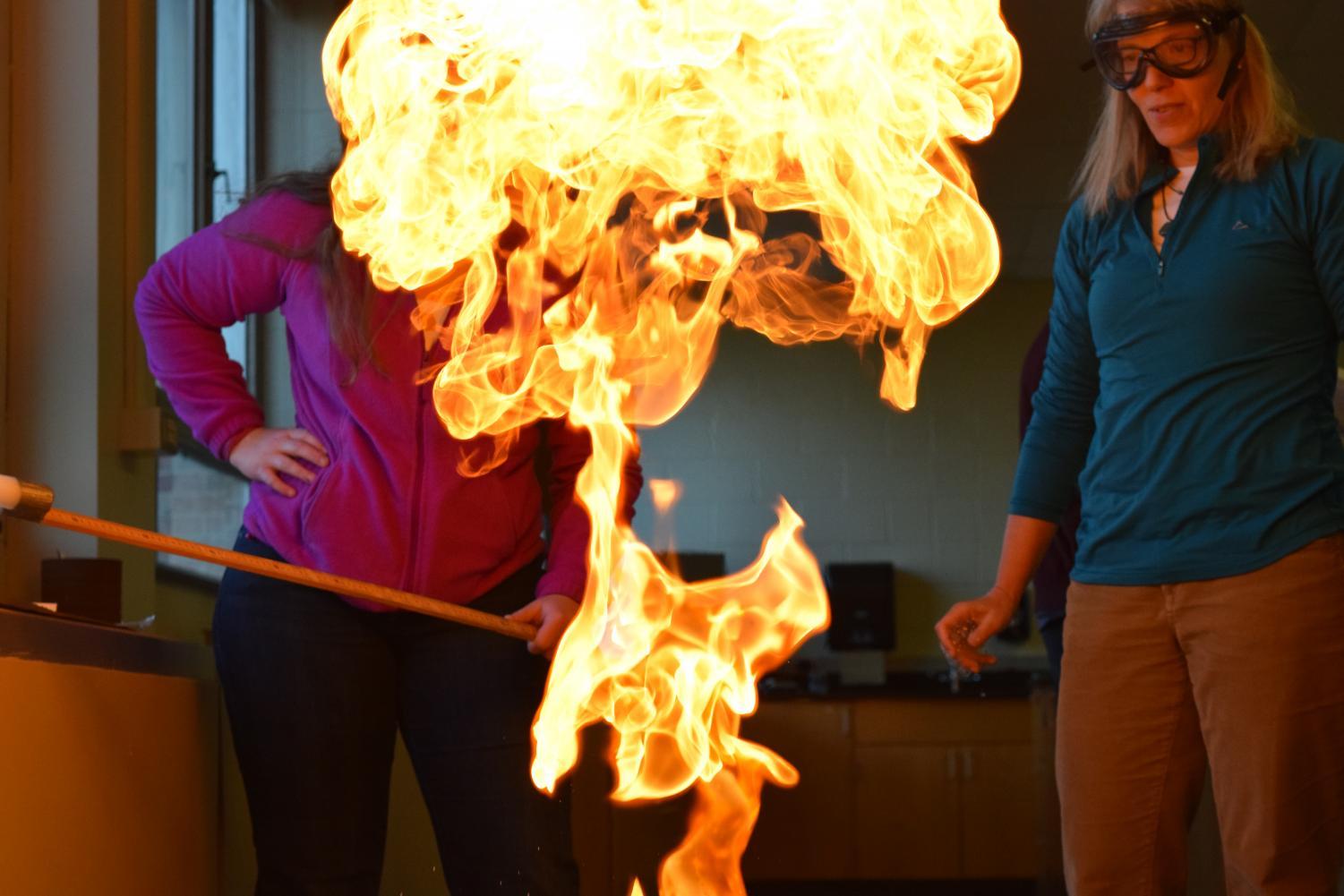
Wikner ended up dropping out of medical school and taking education courses to pursue a job in teaching. She then got her first teaching job at Muscatine High School, but Wikner had to take on teaching multiple classes as part of the job.
“My first year teaching I taught a ninth grade physical science class, a biology class and I taught chemistry. I had five different classrooms and I was a first year teacher,” Wikner said.
Wikner finally returned fully to chemistry when a position opened up the next year.
“At Muscatine, the chemistry teacher retired, so my option was to keep teaching in many different rooms and many different subjects or I could teach two levels of chemistry and just have two rooms,” Wikner said. “Just for mental health and sanity, I knew I had to do that.”
Wikner’s love of chemistry would only blossom from there as she began to put more and more effort into becoming a better chemistry teacher.
You are thinking about atoms that you actually can’t see, but I think once you start to realize that every little thing in the world is atoms, [you realize] that is the foundation of everything. — Michelle Wikner
“One summer I took a course for teachers at Creighton University and it was all about chemistry demonstrations for the classroom teacher. Then I felt really confident about teaching chemistry” Wikner said.
For Wikner, chemistry is not just abstract science.
“You are thinking about atoms that you actually can’t see, but I think once you start to realize that every little thing in the world is atoms, [you realize] that is the foundation of everything,” said Wikner. “Even thoughts and emotions are chemical actions going on in your body, once you really start thinking about it, it’s really pretty amazing stuff. At least for me anyway, that gets kind of exciting.”
Your donation will support the student journalists of West High School. Your contribution will allow us to purchase Scholarship Yearbooks, newsroom equipment and cover our annual website hosting costs.
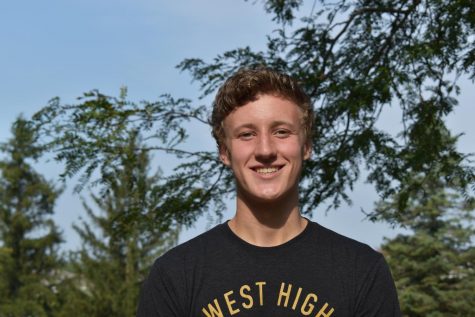
Ken Wilbur is a senior at West and a third-year staffer on West Side Story. While not recording podcasts or writing articles, Ken can be found running...
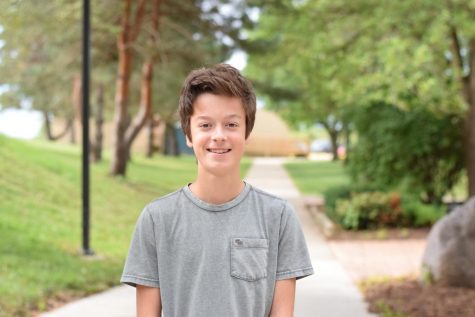
Ivan Badovinac is a junior at West High and it is his first year on staff as a Photographer and Videographer. When he isn't drowning in homework and tests,...


